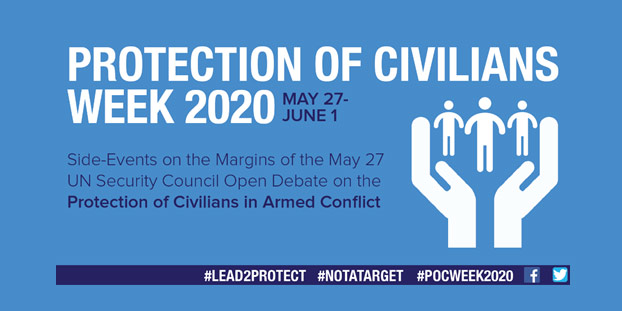PAX urged the United Nations Security Council, UN Member States and the UN Secretariat to take urgent, bold and practical steps to improve the protection of civilians in armed conflict.
Together with 21 other civil society organizations, PAX recommended four key steps during the annual UN Security Council Open Debate on the Protection of Civilians in Armed Conflict. This debate gives UN members a chance to weigh in on the Secretary General’s annual report on the Protection of Civilians in Armed Conflict (PoC) and take stock of the most pressing PoC concerns of the past year.
PAX organized two virtual side events during the debate, which took place on 27 May. The recordings of the PAX virtual side events are available now.
Protecting the environment is protecting civilians
The protection of the environment in armed conflict (PERAC) is intrinsically linked with the protection of civilians, as the behavior of military actors in armed conflicts – both state and non-state actors – can have detrimental impacts on the safety and security of civilians and communities. This link is further expanded upon in the in this year’s UNSG report on PoC. On 29 May 2020, the Governments of Switzerland and Viet Nam and the Joint UNEP/OCHA Environment Unit, the Environmental Peacebuilding Association (EnPAx), and PAX convened a virtual panel of global experts to explore these linkages and the need for coordinated multi-stakeholder solutions.
Training for the protection of civilians
National and international training institutions have developed various training courses focusing on the protection of civilians in peacekeeping operations and have incorporated PoC into existing training curricula. On 1 June 2020, the Governments of Bangladesh, the Netherlands, Rwanda, and Uruguay, in partnership with PAX, convened a virtual panel of training experts and policy-makers to reflect on the challenges and best practices of contributions to UN peacekeeping training aimed at improving the capacities of UN peacekeeping operations to fulfill their mandates to protect civilians.
Links: Protection of Civilians, Conflict & Environment




